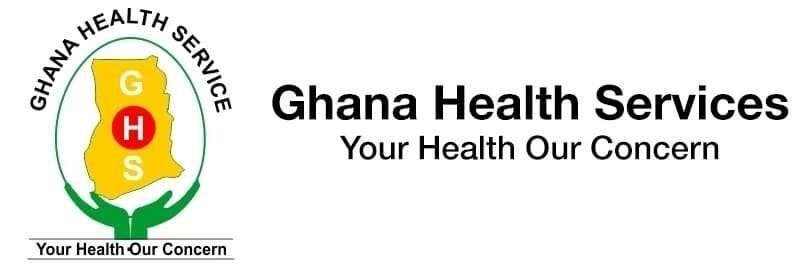Nutrition
Nutrition is more than health —A cross-sectoral policy priority

When a child is born underweight in Ghana, the Ministry of Health takes the blame. When a schoolchild struggles to learn because of hunger, the education sector is blamed. When families cannot afford diverse foods, it is seen as a problem for agriculture. But in truth, these are not separate problems, they are pieces of the same puzzle.
Nutrition is not just about hospitals and clinics. It is about farms, schools, social protection, and governance. Yet Ghana continues to treat it as a health-sector issue. The result is fragmented interventions, duplicated efforts, and policies that never add up to real change.
Take agriculture, for example. Too often, the focus is on increasing yields of cash crops rather than improving the diversity of foods available to families. Education? School feeding programmes fill stomachs but often fail to nourish minds because the meals lack essential nutrients. Social protection? Cash transfers help households survive but don’t always ensure children eat balanced meals.
This is why Ghana must adopt a cross-sectoral approach to nutrition policy. Nutrition targets should be integrated into the performance indicators of every ministry; from agriculture to education to finance. A school feeding programme should not be judged only by how many children are fed, but by whether those meals improve nutrition outcomes. Agricultural policies should measure success not just in tonnes of maize, but in whether families can access affordable vegetables, beans, and protein.
Coordinating this requires leadership from the very top. A National Nutrition Council under the presidency could drive this integration, ensuring that all sectors pull in the same direction and are accountable for results.
The reality is simple: no ministry can fix malnutrition alone. But together, through cross-sectoral policies that recognise nutrition as the foundation of development, Ghana can finally break the cycle.
Feature article by Women, Media and Change under its Nourish Ghana: Advocating for Increased Leadership to Combat Malnutrition Project in collaboration with Eleanor Crook Foundation
Nutrition
Corned beef yam balls

Ingredients
-400 grammes of boiled yam
-20grammes of butter
-80 grammes of corned beef
-1 tablespoonful of nutmeg
-2 tablespoonfuls of white pepper
-2 tablespoonfuls of black pepper
-2 cups of spring onions finely chopped
-¼ cup of red onions finely diced
-2 egg yolk
– 3 tablespoonfuls of salt
-Fresh breadcrumbs (made from 6 slices of fresh bread)
-1 egg plus 1 Egg White
-Oil for deep frying
Preparation
-Peel yam and cut into slices.
– Wash yam, add water and a pinch salt and cook.
-Once cooked, drain water from yam. Mash the yams whilst hot.
-Add the butter and mash yams until nice and smooth
-Add the corned beef, nutmeg, white pepper, black pepper, salt to taste, red onion and spring onions.
-Add egg yolk and mix well.
– Form bites size balls using your palms.
-In a separate bowl whisk the egg, include the white from the other egg. For ease of coating the yam ball.
-Blend the fresh bread into fine crumbs. Place the crumbs in a bowl
-Roll each yam balls first in the eggs and then in the breadcrumbs. Ensure that each ball is well coated.
-Place the balls on a tray and cover it to prevent them from drying out.
-Fill a pot with the oil, about two thirds high, enough to cover the balls and heat it up until very hot.
-Fry the yam balls in batches ensuring that there is enough room for each ball. (Fry the balls until golden brown all round.)
-Remove from the oil and drain on kitchen towels. Serve the yam balls warm as a side dish.
By Linda Abrefi Wadie
Nutrition
Stronger leadership, better nutrition – Why Ghana needs a National Nutrition Council
Ghana has no shortage of policies on nutrition. From commitments to global platforms like the Nutrition for Growth (N4G) Summit to local programmes targeting maternal and child health, the frameworks exist. And yet, the numbers tell us we are still lagging behind.
According to the Ghana Demographic and Health Survey (GDHS) 2022, one in five children is chronically malnourished and nearly half of women of reproductive age suffer from anaemia. These are not mere statistics; they are reflections of families struggling, children missing their potential, and a nation paying the price in lost productivity.
So, what is the problem? Coordination.
Nutrition is not the sole responsibility of the Ministry of Health (MoH). It is linked to agriculture through the food we grow, to education through the meals children eat in school, and to social protection through the safety nets that shield vulnerable households. But too often, these sectors work in silos, with overlapping projects and fragmented budgets. The result is duplication of efforts, inefficiency, and reduced impact.
This is why Ghana urgently needs a National Nutrition Council. Not another layer of bureaucracy, but a high-level body reporting directly to the Presidency, with the mandate to align efforts across ministries, secure dedicated financing, and drive accountability.
Other countries have shown the power of such structures. Rwanda established a national nutrition coordination mechanism under the Office of the Prime Minister, and within a decade, it achieved one of the fastest reductions in stunting in Africa. Ethiopia’s Food and Nutrition Council has also provided the political leadership needed to keep nutrition at the centre of national planning.
Ghana can and must follow suit. A National Nutrition Council will mean that nutrition is no longer buried in the fine print of health sector budgets but elevated to the level of national development strategy. It will mean that Parliament can hold a single accountable body to answer for progress, and civil society can monitor with clarity.
The time has come to stop managing nutrition as an afterthought. A council will give Ghana the leadership structure to match its ambitions. Without it, our pledges, no matter how bold, risk fading into the background noise of unfinished business.
Feature article by Women, Media and Change under its Nourish Ghana: Advocating for Increased Leadership to Combat Malnutrition Project in collaboration with Eleanor Crook Foundation
Join our WhatsApp Channel now!
https://whatsapp.com/channel/0029VbBElzjInlqHhl1aTU27






